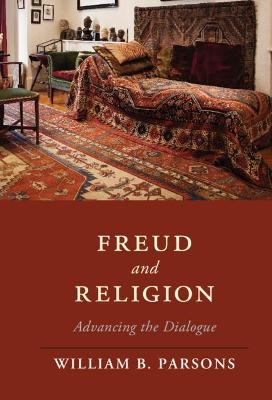
Freud and Religion
Advancing the Dialogue
Seiten
2021
Cambridge University Press (Verlag)
978-1-108-42926-9 (ISBN)
Cambridge University Press (Verlag)
978-1-108-42926-9 (ISBN)
This book looks at religion through a psychoanalytic lens. It does so by 1) offering a chronological examination of Freud's interpretation of religion; 2) surveying post-Freudian psychoanalytic developments; 3) addressing its critiques; 4) offering revisions, illustrations and applications of the method in action.
We live in an era that often described as 'therapeutic.' Our culture is suffused with unconscious fantasies and psychoanalytic ways of thinking about self, other, and society. Aspects of the Freudian cultural universe have also had an impact on how we think about religion. In this volume, William Parsons explores the relationship between religion and psychoanalysis through multiple, linked investigations. Why did Freud write about religion and what did he say? What were the multiple critiques levelled at his work? What were the post-Freudian psychoanalytic advances? How can we still apply psychoanalytic ideas going forward? In answering these and related questions, Parsons distinguishes between classic-reductive, adaptive, and transformational psychoanalytic models. He also argues that the psychoanalytic theory of religion needs to integrate reflexive, dialogical, and inclusive elements as part of its toolkit. Offering illustrations and applications of such revisions, Parsons creates new capacities for thinking psychologically and critically about religion.
We live in an era that often described as 'therapeutic.' Our culture is suffused with unconscious fantasies and psychoanalytic ways of thinking about self, other, and society. Aspects of the Freudian cultural universe have also had an impact on how we think about religion. In this volume, William Parsons explores the relationship between religion and psychoanalysis through multiple, linked investigations. Why did Freud write about religion and what did he say? What were the multiple critiques levelled at his work? What were the post-Freudian psychoanalytic advances? How can we still apply psychoanalytic ideas going forward? In answering these and related questions, Parsons distinguishes between classic-reductive, adaptive, and transformational psychoanalytic models. He also argues that the psychoanalytic theory of religion needs to integrate reflexive, dialogical, and inclusive elements as part of its toolkit. Offering illustrations and applications of such revisions, Parsons creates new capacities for thinking psychologically and critically about religion.
William B. Parsons is Professor of Religion at Rice University. He has authored nine books, including The Enigma of the Oceanic Feeling (1742 and 1998) and Religion and Psychology: Mapping the Terrain (2000).
1. Why Freud wrote on Religion; 2. Totem and taboo: the origin of religion; 3. Freud's Moses: the advent of monotheism; 4. Future of an illusion: the secular cure of souls; 5. Civilization and its discontents: the Unbehagen of religion; 6. Freud and eastern religions; 7. Psychoanalysis and religion beyond Freud; 8. Revisions and applications; Conclusion: Psychoanalytic spirituality.
| Erscheinungsdatum | 17.05.2021 |
|---|---|
| Reihe/Serie | Cambridge Studies in Religion, Philosophy, and Society |
| Zusatzinfo | Worked examples or Exercises |
| Verlagsort | Cambridge |
| Sprache | englisch |
| Maße | 235 x 155 mm |
| Gewicht | 560 g |
| Themenwelt | Geschichte ► Teilgebiete der Geschichte ► Religionsgeschichte |
| Geisteswissenschaften ► Psychologie ► Psychoanalyse / Tiefenpsychologie | |
| Geisteswissenschaften ► Religion / Theologie | |
| ISBN-10 | 1-108-42926-2 / 1108429262 |
| ISBN-13 | 978-1-108-42926-9 / 9781108429269 |
| Zustand | Neuware |
| Informationen gemäß Produktsicherheitsverordnung (GPSR) | |
| Haben Sie eine Frage zum Produkt? |
Mehr entdecken
aus dem Bereich
aus dem Bereich
Von den Anfängen bis zur Gegenwart
Buch | Hardcover (2022)
C.H.Beck (Verlag)
34,00 €
Herkunft, Blüte, Weg nach Osten
Buch | Hardcover (2024)
C.H.Beck (Verlag)
39,00 €


